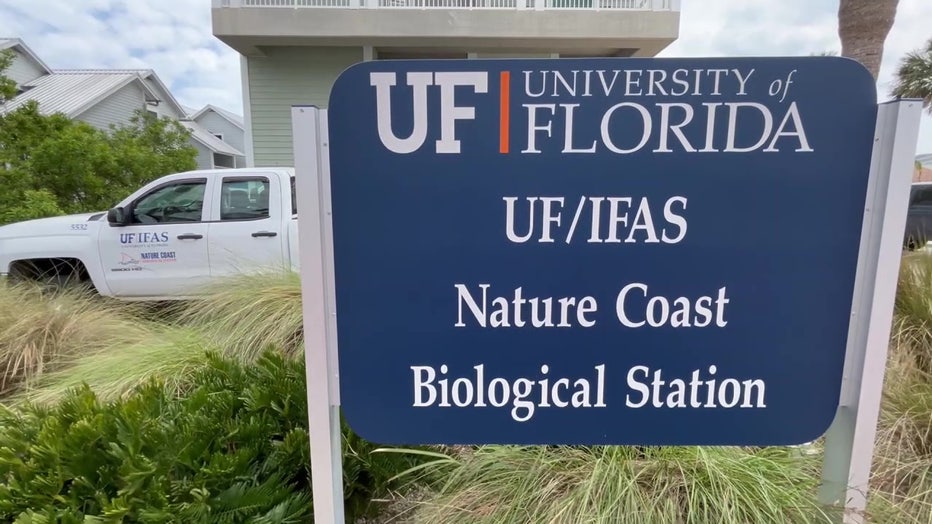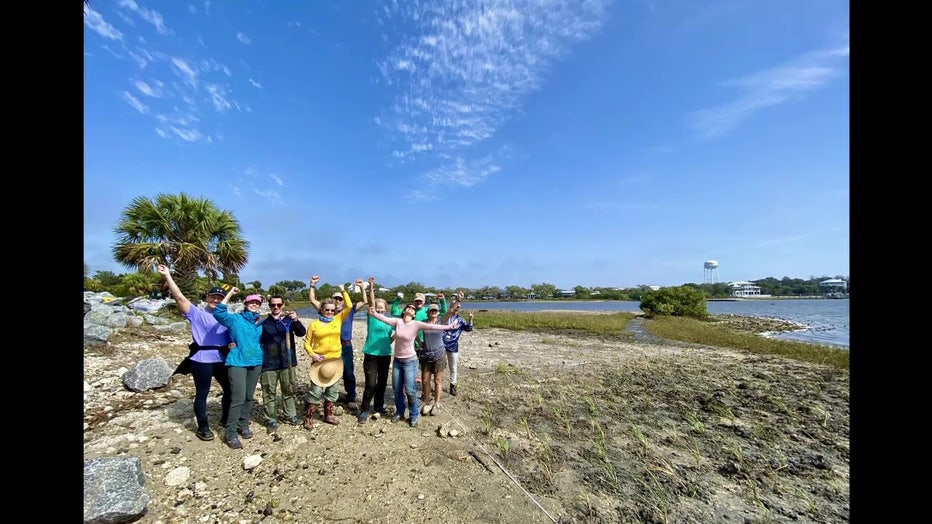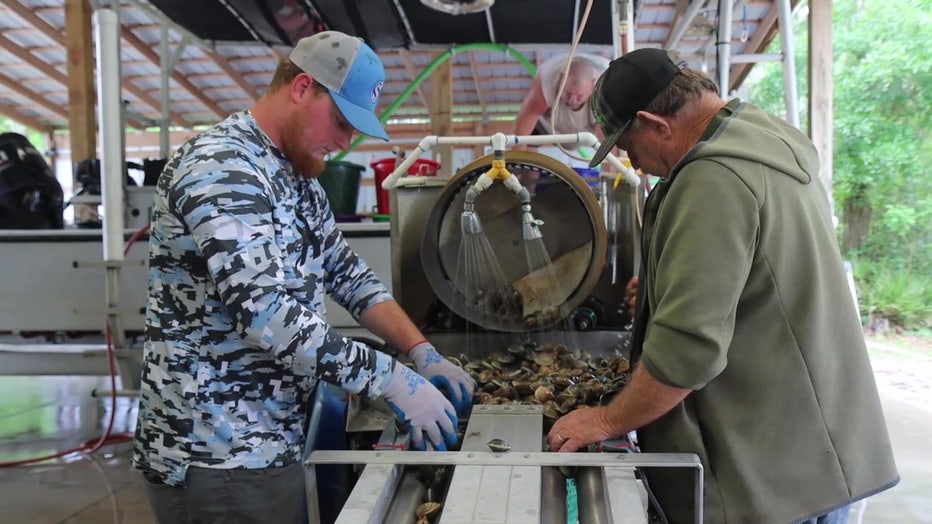Research station sets out to study, preserve Florida’s natural ecosystems

UF research center committed to ecosystem
FOX 13 visited The University of Florida?s Nature Coast Biological Station on Cedar Key to find out how researchers are working to help preserve the state's water.
CEDAR KEY, Fla. - The University of Florida’s Nature Coast Biological Station on Cedar Key is committed to protecting Florida’s natural resources and the livelihoods of those who depend on it.
Thirteen percent of jobs in the area depend on natural resources, compared to one percent of jobs throughout the rest of Florida.
"We are a heavily natural resource-based economy here in the Nature Coast and so having a station like this that provides science that supports the continued sustainable use of those natural resources really important," Savannah Barry, Ph.D., a specialized agent working at the station, said.
Researchers at the station are going to study seagrass propeller scarring.
"The fishing guide community came to us and said that they are still seeing a really big increase in the issue of propeller scarring, which is when boats basically dredge out cuts in seagrass meadows, and it’s really a damage that we could prevent if we could just get a little more information about where it’s happening and why," Barry shared.

The University of Florida Nature Coast Biological Station in Cedar Key is committed to protecting them and the livelihoods of those who depend on it.
Seagrasses are important because they build a foundation on what otherwise would be a bare bottom.
"They create structure for a lot of things to live, so we’re going to be doing mapping and also a lot of work on ecological and economic effects of propeller scarring," Barry explained.
WATCH: Hidden Gems: Cedar Key's Island Hotel bed and breakfast
There is also a big focus on individual properties to address the negative effects of sea level rise and storms such as coastal erosion.
"We’re really seeing that green infrastructure or what we call living shorelines is one way that people can have a cost-effective and nature-based approach to addressing some of the challenges they are seeing on their shoreline, so we do a lot of support around living shorelines," Barry stated. "We’ve built several demonstration projects on Cedar Key that show people what is possible, and they can come and learn in a living classroom about living shorelines."

There are several demonstration projects to teach people in a living classroom setting.
Another big project that the biological station is scaling up oyster restoration. Oyster reefs have declined between 50-80 percent in the Big Bend region.
"It is a really important fishery and oysters have a lot of environmental benefits around fishery production, and water clarity and water filtration," Barry explained.
READ: Tampa Bay Watch non-profit transform old toilets into oyster reef balls
She said oysters are the end-receiver of every bad decision made up in the watershed.

The biological station is working on oyster restoration.
"I think sometimes folks that are not directly next to the coast don’t have a deep understanding of how actions in the watershed may feed down into coastal areas," Barry shared. "Those cumulative effects of things like fertilizer application and groundwater withdrawal, freshwater use. Each of those small decisions adds up to sometimes a big change in our estuaries. We all have a really important impact on groundwater and therefore coastal water quality."
Click here for more information on the Nature Coast Biological Station, including events they hold for the public.
SIGN UP: Click here to sign up for the FOX 13 daily newsletter

